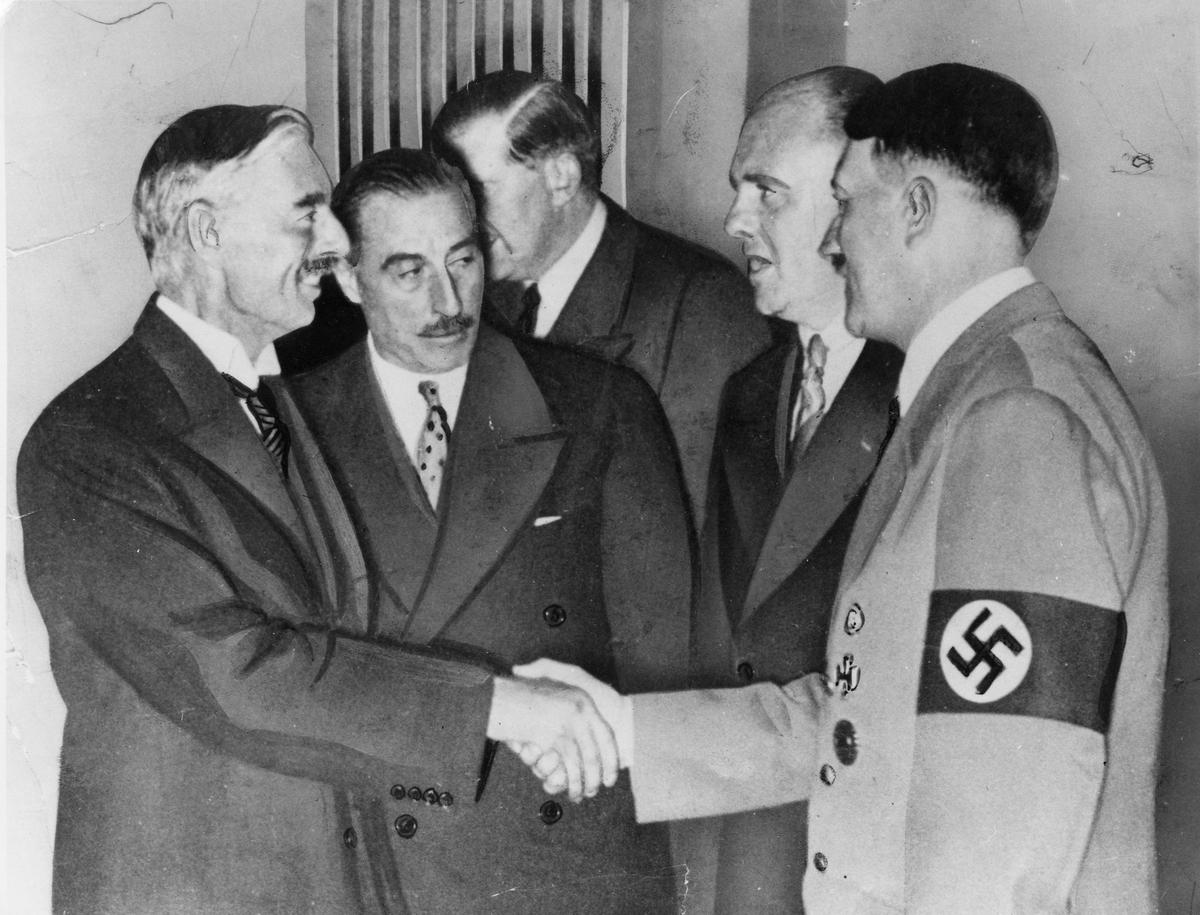US President Donald Trump says he wants to bring peace to Ukraine. But his approach cannot work, because it fails to address the problem of security guarantees. There will be no peace as long as Ukraine must face Russia on its own.
Perhaps this flaw can be overcome. In theory, technical innovation in the miniaturization of warfare might offer new ways of ensuring peace, and France and the United Kingdom – both nuclear powers – could step in as America steps back.
Now is the time to consider such possibilities. Speaking at the Ukraine Defense Contact Group in Brussels this week, US Secretary of Defense Pete Hegseth appears to have just surrendered many of the key elements that would have been subject to negotiations.
Worse, these comments were immediately followed by a euphoric social-media post from Trump about a conversation he had with Russian President Vladimir Putin.
With both parties in the war near exhaustion, it is not foolish to explore the options for achieving a lasting peace in the absence of complete capitulation by one side. But the path Trump has chosen leads directly into an impossible thicket.
For Ukrainians, Putin’s decision to launch a full-scale invasion on 24 February 2022 is the cause. Removing the cause would require a change in the Russian government -- an unlikely outcome.
For Putin, the cause is what he sees as an illegitimate government in Ukraine. Indeed, as he made clear in a wide-ranging essay published in July 2021, he denies the legitimacy of Ukrainian independence itself. Removing the cause thus would require eliminating Ukraine as a sovereign nation-state.
History is full of ironies, and the latest flurry of peace initiatives comes just before the Munich Security Conference, a meeting held a few hundred yards away from the site of the most notorious failed peacemaking attempt in modern history.
It was there, in 1938, that Adolf Hitler managed to convince Britain and France that Czechoslovakia, not Nazi Germany, was the cause of conflict on the continent.

After a month of crisis diplomacy, the British, French, and Italian leaders met Hitler at the Führerbau (“the Führer's building”) in Munich and imposed a political settlement on Czechoslovakia, stripping it of the so-called Sudetenland, a western region with a substantial German-speaking minority that had been radicalized by Nazi propaganda.
Although peace agreements are often driven by a revulsion to the horrors of war, they also often set the stage for new conflicts.
In a 27 September 1938 radio address to the British people, Prime Minister Neville Chamberlain reflected,
“How horrible, fantastic, incredible it is that we should be digging trenches and trying on gas masks here because of a quarrel in a faraway country between people of whom we know nothing.”
Chamberlain in 1938 after signing the Munich Agreement
Within a year, Britons were putting on gas masks and building defenses.
Meanwhile, in France, the argument for peace (appeasement) in 1938 and 1939 was distilled in the question: “Mourir pour Dantzig?” (“To die for Gdansk?”). But those who believed they had kept themselves safe through clever diplomacy were soon dying for France.

The 1938 Munich disaster taught the world these five ironclad security lessons. The 2025 one proved Trump has forgotten them all
The language of failed peacemaking follows a familiar pattern.
- First, we are told that the big boys will handle it by sidelining bothersome smaller countries with their complicated histories. As Trump said of his conversation with Putin, “We both reflected on the Great History of our Nations.” The big European powers exhibited the same arrogance in 1938.
- Second, we are told that simple logic will suffice. Or, as Trump put it, “President Putin even used my very strong Campaign motto of, ‘COMMON SENSE.’” It was also "common sense" that the Sudeten question, not Hitler’s desire to unite Europe under Nazi rule, was at the heart of the 1938 crisis.
- Third, the peacemongers invoke the threat of civilizational collapse. Russia has consistently threatened nuclear war, and similar fears of escalation shaped British decision-making in the late 1930s. “The real triumph,” Chamberlain told the House of Commons on 3 October 1938, “is that … representatives of four great Powers can find it possible to agree on a way of carrying out a difficult and delicate operation by discussion instead of by force of arms, and thereby they have averted a catastrophe which would have ended civilization as we have known it.”
With the benefit of hindsight, the real triumph would have been to freeze the conflict until a real solution could be worked out. That might take decades, as in postwar Germany, or even longer, as on the Korean Peninsula since the 1953 armistice. There may be a gradual thaw, as occurred in relations between East and West Germany, or there may not be.
Either way, West Germany and South Korea both remained secure after the fighting stopped because they were protected by the West’s Cold War deterrence framework.
Likewise, effective deterrence is the key to ensuring that the conflict in Ukraine remains truly frozen and that Russia does not just use the freeze to build up its military capacity until it can apply irresistible force.
During the Cold War, such deterrence was achieved with the threat of mutual assured destruction. The same mechanism could offer a way out now.
It could be applied by France and the UK, which, along with the US and Russia, are parties to the 1994 Budapest Memorandum, whereby Ukraine agreed to give up more than 1,700 Soviet-era nuclear weapons in exchange for the other parties’ promise to ensure Ukraine’s territorial integrity. Either France or the UK – or preferably both – could supply nuclear weapons to Ukraine and any other vulnerable targets of Russian aggression.
Had Britain and France been capable of arming Czechoslovakia effectively in 1938, there would have been no German invasion, and maybe no World War II. But this simply wasn’t possible at the time.
Today is different. France and Britain do possess the means of deterrence, and technological transfers are much easier.
There has long been talk of finding a new form of multilateralism in a world that is becoming more fragmented and multipolar. France and Britain have a chance to show how this might work, and how it could restore some peace and security to a world that is tottering on the edge of the abyss.
Editor's note. The opinions expressed in our Opinion section belong to their authors. Euromaidan Press' editorial team may or may not share them.
Submit an opinion to Euromaidan Press
Copyright: Project Syndicate. This article was published by Project Syndicate and has been republished by Euromaidan Press with permission.


